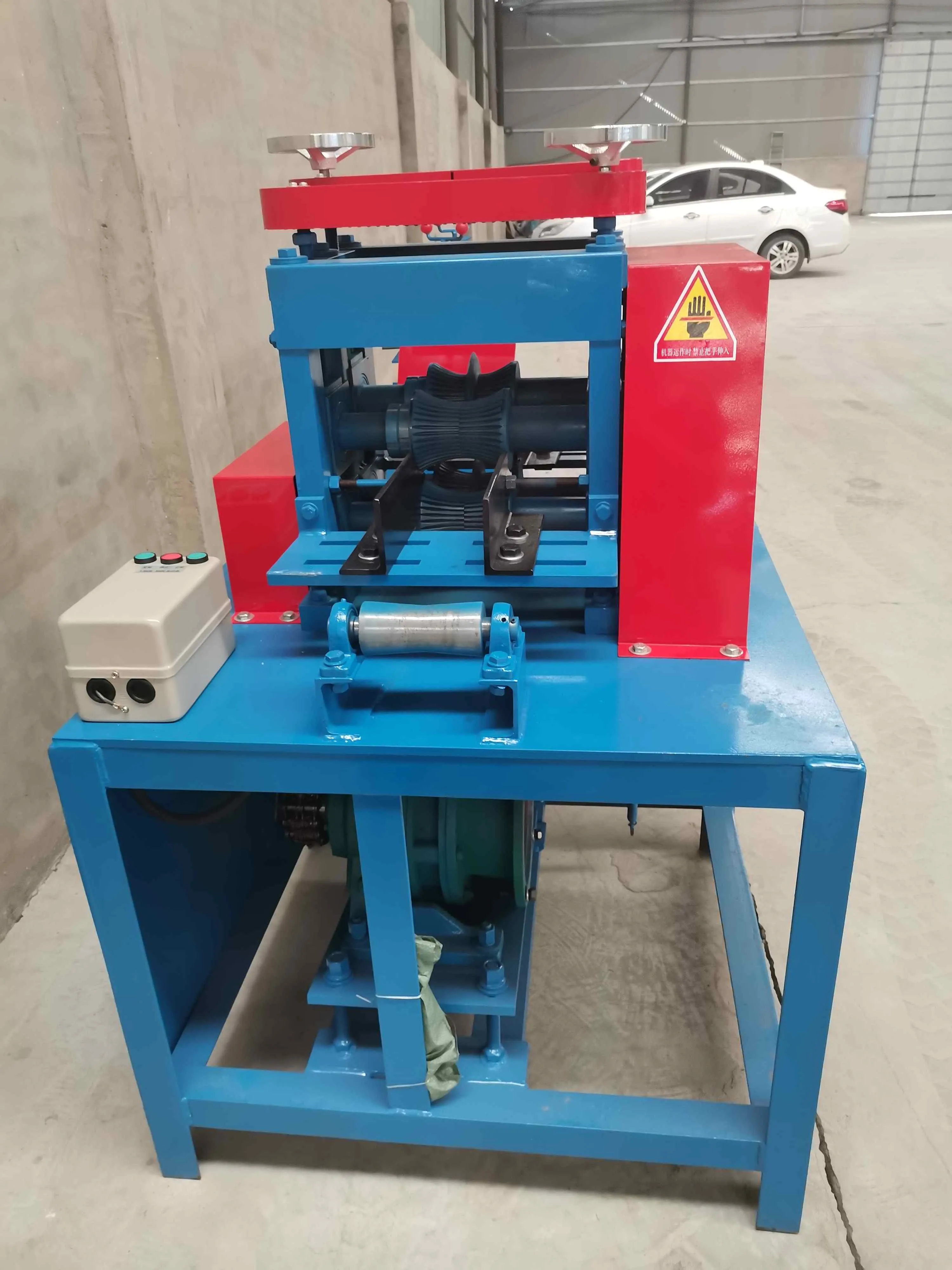

Dec . 09, 2024 22:05 Back to list
Understanding Industrial Chippers An Essential Tool for Modern Industries
Industrial chippers are powerful machines designed to break down raw materials into smaller, manageable sizes, serving a fundamental role in various industries. They are predominantly used for processing wood, but their applications extend to other materials like plastic, rubber, and even certain types of metal. This article delves into the importance, functionality, and applications of industrial chippers.
The Importance of Industrial Chippers
In an era where efficiency and sustainability are paramount, industrial chippers play a crucial role in waste management and recycling. They help reduce the volume of biomass by converting large pieces of wood, brush, and other organic materials into mulch or chips that can be reused for landscaping, erosion control, and even biofuel production. This not only helps industries comply with environmental regulations but also promotes a circular economy, allowing resources to be reused rather than discarded.
The Functionality of Industrial Chippers
Industrial chippers operate through various mechanisms to reduce the size of raw materials. The most common types include drum chippers, disc chippers, and mobile chippers, each designed for specific tasks.
1. Drum Chippers These machines utilize a large rotating drum fitted with sharp blades. As wood enters the chamber, the drum spins rapidly, slicing the material into smaller chips. Drum chippers are known for their high processing capacity and are ideal for large-scale operations.
2. Disc Chippers Featuring a rotating disc with multiple knife blades, these chippers are effective for producing uniform chips. They are particularly well-suited for processing logs and branches, making them a favorite in lumber mills.
3. Mobile Chippers These portable machines are especially useful in forestry or land-clearing operations. They can be easily transported to different job sites, providing flexibility and efficiency in material processing.
Regardless of the type, industrial chippers' primary objective is to enhance the efficiency of material handling, streamline waste disposal, and create valuable byproducts from waste materials
.
Diverse Applications of Industrial Chippers
The applications of industrial chippers span across multiple sectors
1. Forestry and Logging In timber production, chippers are employed to process leftover wood from logging operations. This ensures that minimal waste is generated and that all parts of the tree are utilized effectively.
2. Construction and Demolition Industrial chippers are used to break down wooden debris from construction sites. By turning waste into mulch, companies can efficiently manage debris while enhancing soil quality in landscaping applications.
3. Agriculture Farmers utilize chippers to process crop residues and organic waste. Mulching these materials not only enriches the soil but also serves to retain moisture and suppress weeds.
4. Recycling Industries Chippers are integral in recycling operations, particularly for converting wood pallets, crates, and other wooden products into raw material for new products. This recycling process greatly reduces landfill waste and supports sustainable manufacturing practices.
Safety and Maintenance Considerations
While industrial chippers offer numerous benefits, they also pose significant safety risks. Operators must be trained to use these machines properly, understanding the safety protocols to prevent accidents. Regular maintenance is crucial to ensure optimal performance and longevity of the equipment. This includes inspecting blades, lubricating moving parts, and cleaning the machines after use to prevent material buildup.
Conclusion
Industrial chippers are essential tools that contribute significantly to efficiency and sustainability in various industries. By transforming waste materials into usable products, they not only help companies reduce operational costs but also promote responsible resource management. As industries continue to seek innovative ways to enhance productivity while minimizing environmental impact, the role of industrial chippers will undoubtedly become even more critical in the modern landscape.
Latest news
Troubleshooting Common Eddy Separator Problems
NewsJul.04,2025
The Role of Metal Recycling Plants in Circular Economy
NewsJul.04,2025
The Impact of Recycling Line Pickers on Waste Management Costs
NewsJul.04,2025
Safety Features Every Metal Shredder Should Have
NewsJul.04,2025
How Industrial Shredders Improve Waste Management Systems
NewsJul.04,2025
How Cable Granulators Contribute to Sustainable Recycling
NewsJul.04,2025